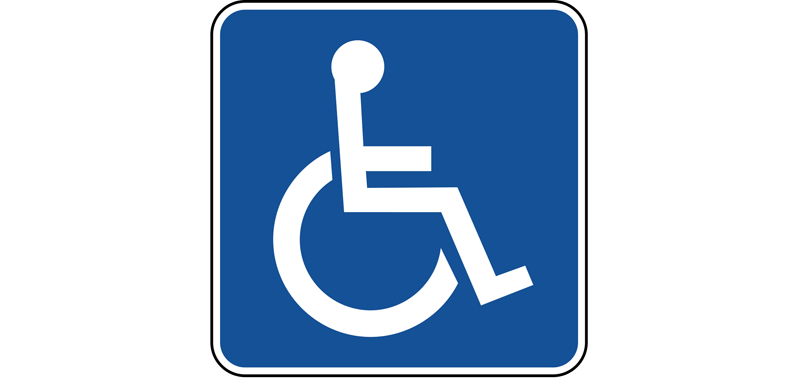“I magine if you were reserving a room for yourself at a hotel via its Internet web site, when you find that you can reserve a room specifically designated for disabled persons at a less-expensive rate — perhaps potentially saving you greater than $100.00 per night.”
In this article from Wednesday, August 30, 2006 — almost ten years ago — I asked, “Would you do it?”
Rooms for Disabled Persons Revisited: Would You Reserve One if the Price was Right?
I ask that question again because the topic has been raised again in the same FlyerTalk discussion which prompted the original article — but there is at least one other similar discussion which was launched on FlyerTalk.
“As a former Revenue Manager, if it’s the only room left or the cheapest rate, I say book the accessible room”, responded FlyerTalk member writerguyfl. “Simply add a note to the comments indicating that you don’t need it. There are always more accessible rooms than needed.”
FlyerTalk member darthbimmer does not want to ever be a guest in one of those rooms at all: “As an aside, I actually hate being assigned an accessible room. I always ask to be moved. One of the reasons is that some of the adjustments made in the name of ‘accessibility’ are actually unsafe. For example, ‘roll in’ showers are great for people confined to wheel chairs, but for anyone else– including those who can walk, but barely, and use a walker or cane– typically such showers have no barrier against water pouring all over the bathroom floor. The ensuing puddle is an enormous hazard. At least twice my mobility impaired wife has nearly slipped and fallen in a bathroom supposedly designed for her benefit.”
Those rooms are not always desired, as also demonstrated by FlyerTalk member IsleOfMan with this temporarily solution of sorts: “I have experienced the roll-in shower flood as described and on once occasion used a line of rolled-up towels as a barrier to channel water to the drain which was, inexplicably, in the middle of the bathroom itself instead of in the shower.”
Regardless, many FlyerTalk members do not mind reserving a room specially designed for guests who are disabled if the room rate is less expensive or if there is no other choice — as recounted by members of FlyerTalk such as Sisosig: “Had two stays with Marriott this month. In both cases was given an accessible room, without the front desk telling me. I felt extremely tired on both days, so I was happy to be able to just take a shower and jump into bed with the bonus of not running into any object.”
Summary
In the years in which I have been a frequent traveler, I have been assigned a room at a hotel designed for disabled people several times; and while there is more room in areas such as where a shower is taken in the bathroom, I am not particularly fond of those rooms — especially as they were designed for people who need them more than I do.
Of course, I do have to say that not once has management at a hotel property informed me that I needed to vacate the room because a guest who is disabled had just checked in at the last minute — and those few stays which I did experience were either one night or two nights at the most.
I refuse to use parking spaces reserved for people who are disabled — whether or not it is against the law. I only use public washrooms reserved for people who are disabled when the situation is absolutely necessary, which is quite rare — and even then, I keep one eye and ear open in case I need to vacate that facility as soon as possible.
One other thing: just because a person does not seem like he or she is disabled — when using a parking spot reserved for people who are disabled, for example — does not automatically mean that he or she is not disabled, according to this article posted at the official Internet web site of the Invisible Disabilities Association. Although judging that person may be easy to do, automatically jumping to conclusions may lead to an incorrect assumption — depending on the individual case, of course.
Is the act of an able-bodied person reserving a hotel room specially designed for a person who is disabled an ethical thing to do — especially when either no other rooms are available or the room rate is significantly lower than other rooms?

